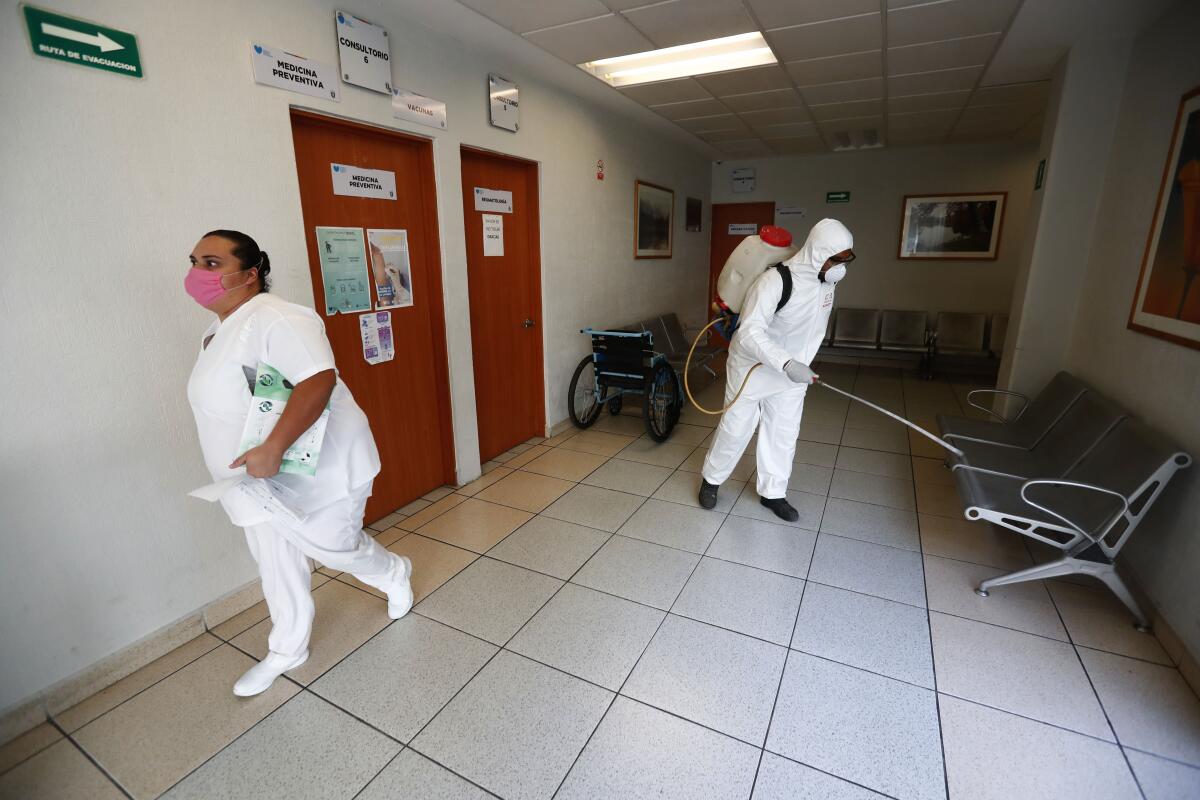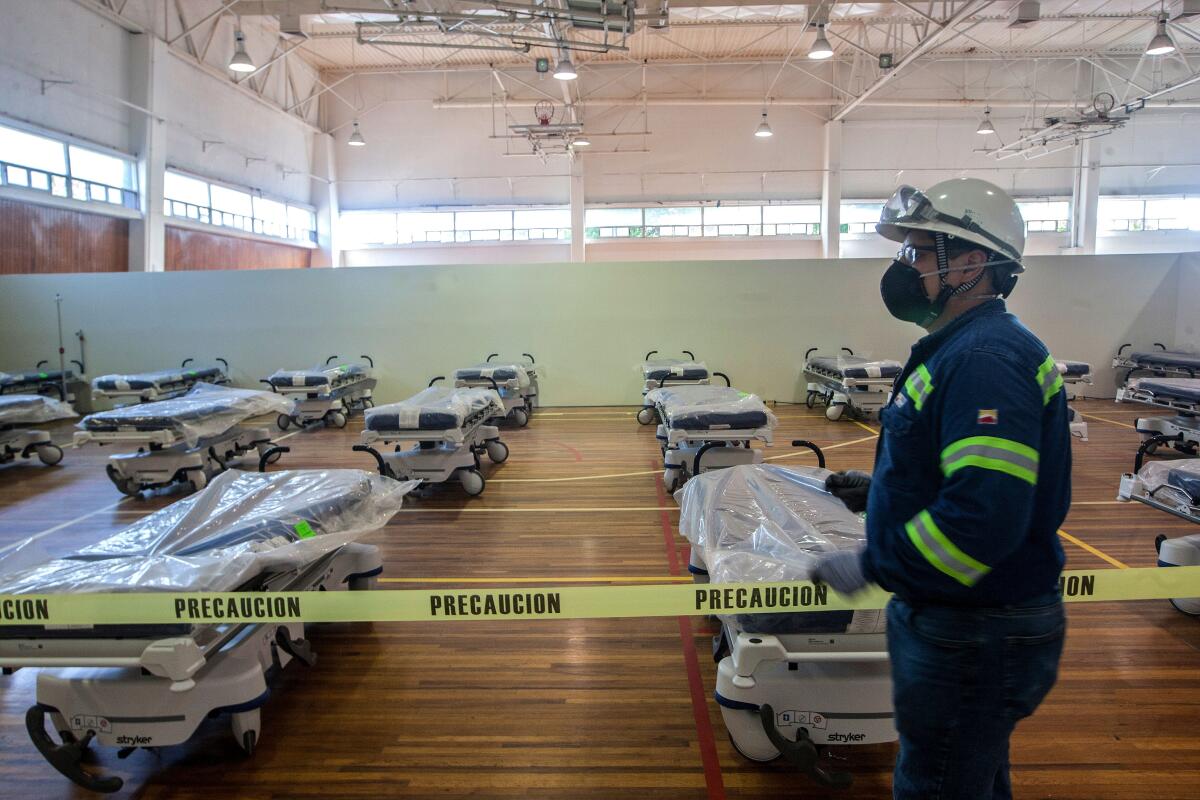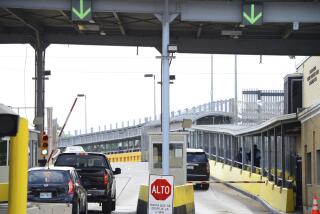Mexican health workers protested a lack of protective gear. Now they are getting COVID-19

- Share via
Mexico City — For weeks, staff at public hospitals across Mexico have been protesting a shortage of basic protective supplies, including masks, gloves and even hand soap.
Now some of them are getting sick. At least 329 doctors and nurses in the country’s public medical system have tested positive for COVID-19, according to health officials.
Some doctors on the front lines say the true number of infections may be higher and blame politicians who have slashed hospital budgets in recent years for leaving them unprepared to fight the virus.
While early cases in Mexico were generally confined to those wealthy enough to travel outside the country and receive treatment in private hospitals, outbreaks have been erupting in the chronically underfunded hospitals and clinics where most Mexicans receive care.
Several Mexicans who visited Vail have tested positive for coronavirus, raising fears of an outbreak that could devastate the nation’s poor.
In the tourist resort of Cabo San Lucas, 42 workers at a public hospital recently tested positive for the disease.
In the city of Monclova, near the border with Texas, a truck driver who had been in the United States spread the infection to several dozen health workers, at least three of whom have died, authorities say.
In recent days, attention has been focused on Regional General Hospital No. 72 in Tlalnepantla de Baz, a community just north of Mexico City. Federal authorities say 19 medical workers there have tested positive, and staff say at least 10 others have symptoms and are awaiting test results.
“This didn’t have to happen,” said a medical resident who came down with a fever and a headache on Sunday, two weeks after she treated a patient who was suspected of having COVID-19 and later died.
The resident said she worked without a mask, goggles and scrubs, because none were available. The doctor, who spoke on the condition of anonymity because she was not authorized to give interviews, said she is resting at home and awaiting her own test results for COVID-19.
Two other doctors who work at the same hospital confirmed that health workers lack basic protective gear.
“We’re all terrified that we’re going to be the next to get sick,” said another medical resident, who said she was recently forced to intubate a patient presumed to have COVID-19 but was not provided with a mask.
“I’m afraid that I might die, or that I could carry the disease home to my family, and they could die,” the doctor said.

Supply shortages in Mexico’s overburdened public hospitals predate the coronavirus crisis.
Sometimes, doctors and nurses have had to ask patients to buy them surgical masks, gowns and other basic supplies. At the hospital in Tlalnepantla, shortages of soap and other cleaning supplies have led to outbreaks of colitis and other infectious disease.
But the severity of the issue has come into focus in recent months as the coronavirus has spread from the industrial city of Wuhan, China, to other regions in the world.
Mexico has confirmed 233 COVID-19 deaths and 3,844 cases, but experts believe those numbers reflect low levels of testing and that the real number of infections could be eight times the official total.
In the hospital in Tlalnepantla, doctors have petitioned their supervisors to provide more widespread testing of both patients and medical personnel.
Since the first case arrived in Mexico in late February, hospital workers throughout the country have been protesting, calling on authorities to provide more protective gear.
Mexican officials have promised that more supplies are on the way, citing a recent shipment from China that included large numbers of gloves, masks and other equipment.
“Our teams are already starting their distribution, so we think it won’t take long for them to arrive,” said Deputy Health Secretary Hugo Lopez-Gatell.
A statement from Mexico’s Social Security Institute, which operates public hospitals and clinics, said officials were working to improve conditions in the nation’s healthcare centers, including the hospital in Tlalnepantla.
“Actions are being strengthened to minimize medical and operating risks, including sanitation throughout the hospital, constant provision of personal protective equipment and permanent communication with workers and union representation,” the statement said.
Cecilia Sanchez in The Times’ Mexico City bureau contributed to this report.
More to Read
Sign up for Essential California
The most important California stories and recommendations in your inbox every morning.
You may occasionally receive promotional content from the Los Angeles Times.














